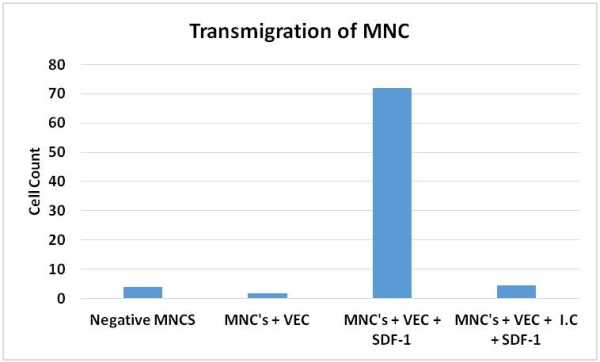Immunologic Basis for Immunocloaking.
1BREONICS Inc., Watervliet, NY
2Plastic Surgery, University of Utrecht, Utrecht, Netherlands.
Meeting: 2016 American Transplant Congress
Abstract number: A21
Keywords: Allorecognition, Antigen presentation, Kidney transplantation, Rejection
Session Information
Session Type: Poster Session
Date: Saturday, June 11, 2016
Session Time: 5:30pm-7:30pm
 Presentation Time: 5:30pm-7:30pm
Presentation Time: 5:30pm-7:30pm
Location: Halls C&D
A novel organ-specific immunomodifying therapy referred to as immunocloaking (IC) provides protection from early allograft rejection without immunosuppressive drugs. The IC binds to the surfaces of the vasculature within kidneys, interrupting the interface between donor endothelium (VEC) and recipient immune cells; without adversely affecting renal function. The result is a newly engineered non-immunogenic apical surface. We now report the underlying protective mechanisms involved with IC.
Methods: The IC membrane was applied to confluent human VEC. The immunologic testing included: effect of IC on antigen presentation, T cell activation & proliferation and diapedsis using standard methodology with flow cytometry, Luminex screening, proliferation assays and chemotactic-driven diapedesis. Testing used responding mononuclear cells (MNC) stimulated by confluent allogeneic VEC without (negative control) and with IC (test). Transendothelial migration involved VEC grown on filters in Transwell™ plates. MNC (1X104) were added to the upper chambers and chemoattractant SDF-1, a potent chemotactic factor for lymphocytes, was added to the lower chambers to form chemokine gradients.
Results: The IC membrane prevents antigen presentation and early T cell activation, eliminating T cell proliferation. The results from these studies demonstrate VEC strongly stimulated MNC. IC VEC inhibited responses by >99% . Transmigration: In negative controls without SDF-1 few MNC migrated through VEC layers into the lower chambers. In positive controls >65% of the cells migrated through the VEC into the lower chambers containing the SDF-1. In IC/VEC monolayers, the MNC migration into lower chambers with the SDF-1 was inhibited by a mean of 86.7%. 
Conclusions: We previously demonstrated that IC prevents renal allograft rejection with a mean of 30 days with no immunosuppression. How the IC prevented rejection was previously unknown. We now show that IC temporarily prevents alloresponses. Significantly, IC prevents chemokine-stimulated transmigration. Eliminating the need for nephrotoxic drugs during the early posttransplant period could help to ameliorate the severity of delayed graft function.
CITATION INFORMATION: Brasile L, Kizjakina K, Henry N, Stubenitsky B. Immunologic Basis for Immunocloaking. Am J Transplant. 2016;16 (suppl 3).
To cite this abstract in AMA style:
Brasile L, Kizjakina K, Henry N, Stubenitsky B. Immunologic Basis for Immunocloaking. [abstract]. Am J Transplant. 2016; 16 (suppl 3). https://atcmeetingabstracts.com/abstract/immunologic-basis-for-immunocloaking/. Accessed July 5, 2025.« Back to 2016 American Transplant Congress
